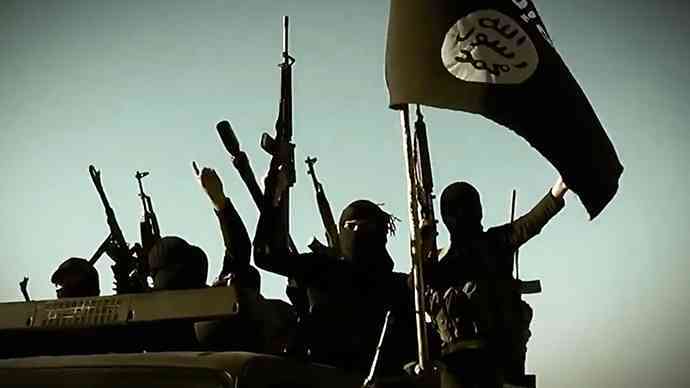Before we explore the foundations of modern Jihad, we must understand the meaning of Jihad.
This is important because apologetics and obfuscatory tactics employed by “moderate Muslims” has changed the definition of Jihad into some benign higher spiritual struggle.
Jihad, writes Brigadier S.K. Malik in ‘The Quranic concept of war’, is a “total strategy” and “the term, Jihad, so often confused with military strategy, is, in fact, the near equivalent of total or grand strategy or policy-in-execution. Jihad entails the comprehensive direction and application of power while military strategy deals only with the preparation for and application of force. Jihad is a continuous and never ending struggle waged on all fronts including political, economic, social, psychological, domestic, moral and spiritual to attain the object of policy. It aims at attaining the overall mission assigned to the Islamic state, and military strategy is one of the means available to it to do so. It is waged at individual as well as collective level, and at internal as well as external front.
Waged in its true spirit, and with the multiple means available to it, the Islamic concept of total strategy has the capacity to produce direct results. Alternatively, however, it creates conditions conducive to the military strategy to attain its object speedily and economically. Military strategy thus draws heavily on the total strategy (Jihad) for its successful application.”
Broadly speaking, Jihad can be classified into:
a) Jihad al-nafs/qalb ( Jihad by the soul)
b) Jihad bil lisan ( Jihad by the tongue)
c) Jihad bil qalam ( Jihad by the pen)
d) Jihad bil sayf ( Jehad by the sword)
Apart from the Qur’an, the hadiths and the life of Muhammad, Jihadist movements have been inspired to varying degrees by the teachings of Ibn Taymiyyah and Muhammad Wahhab. But arguably, the thoughts of Abul ‘Ala Maududi ( the founder of Jamaat-e-Islami) and Sayyid Qutb ( the intellectual godfather of the Muslim Brotherhood) have played a more crucial role in Jihadi movements of the twentieth and twenty first century. Sayyid Qutb’s ideas will be of particular interest to us here. His argument can be considered an extension of Maududi’s ideas. Indeed, Maududi inspired Qutb.
Central to Qutb’s vision of the world is the concept of “Jahiliyyah”( the state of divine ignorance) He explains the meaning of Jahiliyyah in his most famous work ‘Milestones’, a book considered by some scholars as the manifesto of modern Jihad. According to Qutb, any system that is not Islamic is Jahili. Qutb’s idea of an Islamic system is a system where only Allah is sovereign and Shari’a is the only regulator of day to day affairs. The basis of Jahiliyyah is “a rebellion against God’s sovereignty on Earth.” The pull of Jahiliyyah was such that even Islamic societies were steeped in Jahiliyyah. He sought a return to a purely Islamic society- the society established by Muhammad and the first generation of Muslims. Qutb called for a vanguard of pious Muslims to lead the way and translate the thoughts into a robust revivalist movement.
Qutb was later hanged by the Egyptian administration for plotting the assassination of President Gamal Abdel Nasser. Ayman al-Zawahiri, the leader of Al-Qaeda, in his book ‘Knights under the Prophet’s banner’ highlights the importance of Sayyid Qutb- “Qutb’s message was and still is to believe in the oneness of God and the supremacy of the divine path. The message fanned the fire of Islamic revolution against the enemies of Islam at home and abroad. The chapters of the revolution are renewing one day after another.”
A factor often glossed over but nonetheless central to the rise of Jihaad is Western intervention in Islamic societies, particularly the Middle East. The West, lead by the US and Britain, aided several fundamentalists against the comparatively moderate regimes in the hope of securing their strategic interests. These include the Muslim brotherhood, Wahhabi Ibn Saud in Arabia, Fadayan-e-Islam in Iran and Darul Islam in Indonesia, among others. (Source: Secret Affairs: Britain’s collusion with Radical Islam)
The ongoing civil war in Syria is just another example where the West has “inadvertently” aided Jihadi forces. But unlike previous times, the West is not free from Jihadism. Although, Jihadism posed a significant threat prior to the refugee crisis; the refugee crisis has aggravated the problems of Europe. With its below replacement fertility rate, unsustainable welfare state model and Liberalism, Europe is a fertile ground for Jihad.
